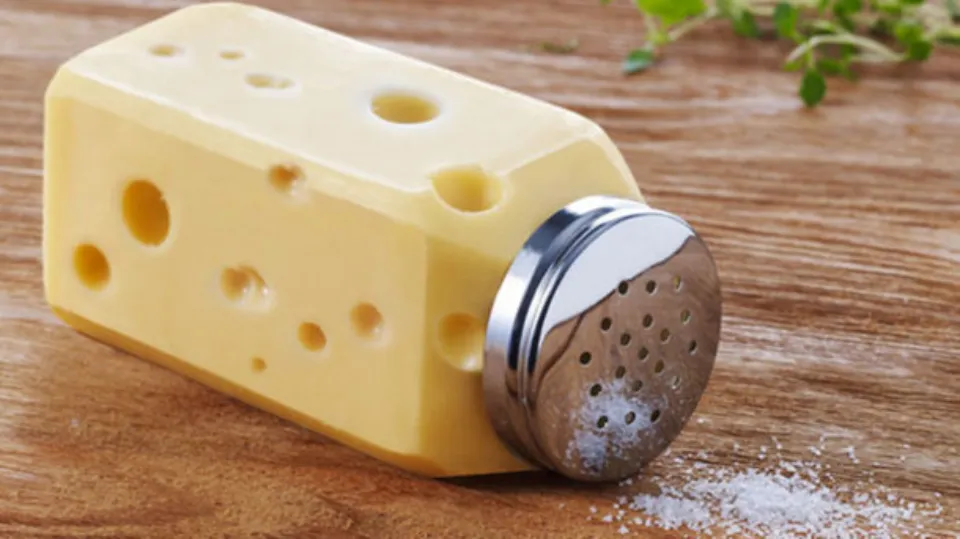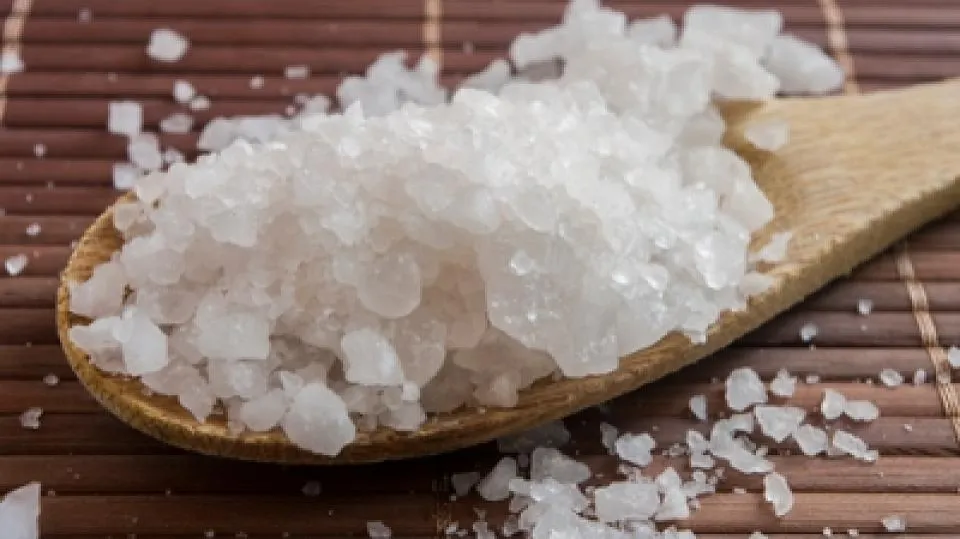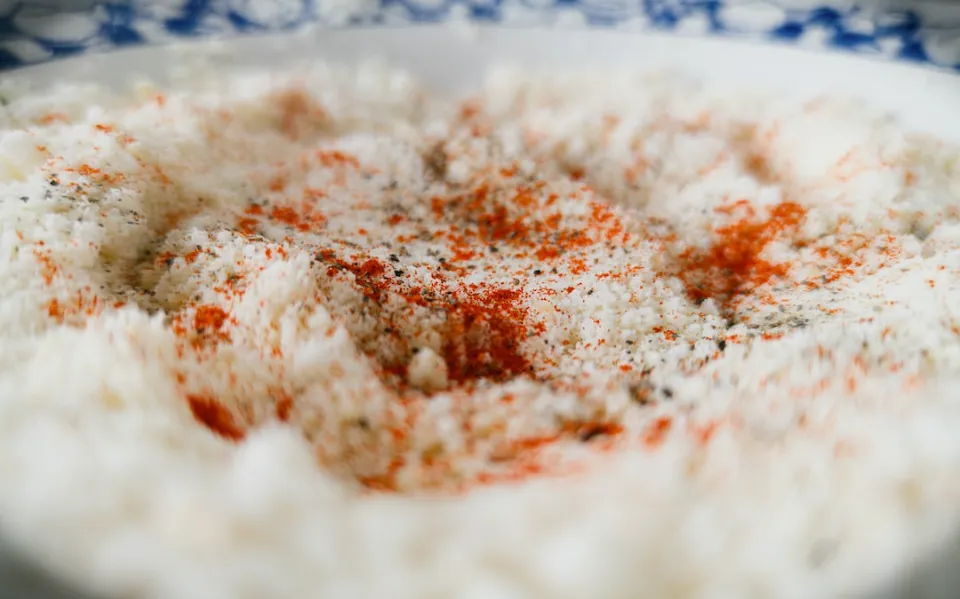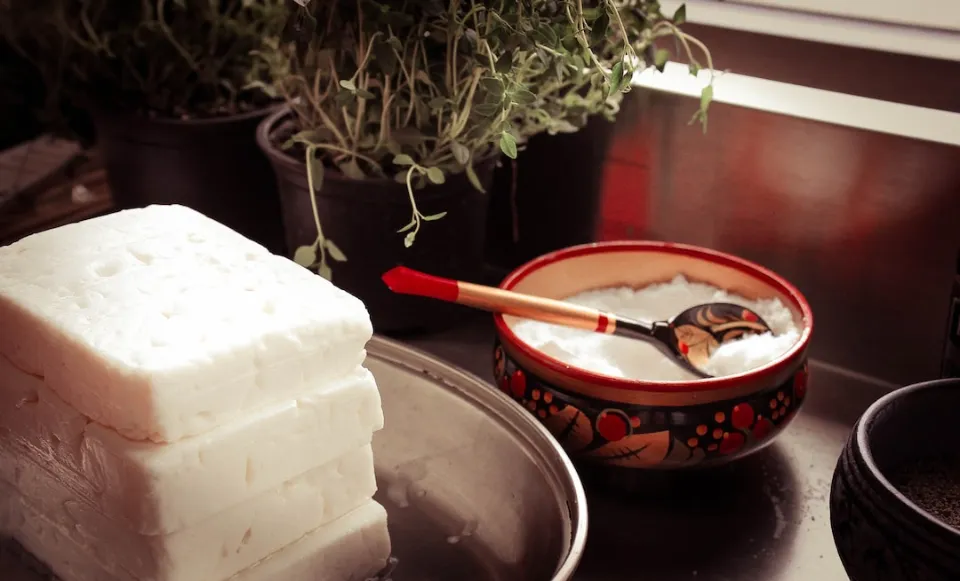When we are trying to make cheese by ourselves, we may find there a salt called cheese salt in the recipe. So what is cheese salt? Is it important?
In this passage, I’ll fully explain the question of what is cheese salt. Besides, I’ll give you some examples of cheese salt.

What is Cheese Salt?
Simply put, cheese salt is uniodized salt. The bacterial growth and health that are required for successful cheesemaking are harmed and inhibited by iodized salt. Also significantly slowing down the aging process is iodized salt. As flakes are more readily dissolved and assimilated, cheese salt is occasionally sold in flakes rather than grains.
Why Isn’t Iodized Salt Used in Cheesemaking?
Although salt is a requirement for making cheese, iodized salt is typically not suggested. This is for a few different reasons:
- Salt that hasn’t been iodized isn’t bleached. Because it gives cheese extra additives and chemicals, iodized salt is not used in cheesemaking. Any excessive chemicals are typically avoided because making cheese at home offers many people a nutritious substitute for processed cheese.
- It is harmful to receive too much iodine. Due to the risk of excessive iodine consumption, cheese made with iodized salt is prohibited in many nations, including France. Ingesting too much iodine can result in health issues like thyroid autoimmune disease, thyroid inflammation, and goiters.
- Salt iodized is not good for fermentation. Iodine disrupts the good bacteria that cheese needs to properly ferment. This may have an impact on how quickly and effectively cheese is processed.
Iodized salt can be used in cheese, but if there is a better option, avoid using it. If you have any other options for cheesemaking salt, choose against using iodized salt due to the excessive chemicals side and the impact it has on cheese longevity and spoilage.

What is the Purpose of Salt in Cheesemaking?
Salt serves a number of purposes in the production of cheese and is an essential ingredient. Here are a few of the reasons that salt is added to cheese:
- Preserves the cheese: Cheese lasts longer when salted to prevent spoilage. Because salt has the ability to prevent bacteria from causing mold and decay in cheese, it is frequently used to preserve a variety of foods.
- Improves cheese flavor: The salty, tangy flavor of most cheeses is well known. To improve the flavor of cheese, it needs salt. Cheese may age to an excessively acidic state if it doesn’t have the right amount of salt. As a result of this acidity, cheese may taste sour and unpleasant.
- Develops cheese texture: During processing, salt aids in the proper coagulation and development of cheese’s ideal texture. The amount of moisture in cheese as it forms is significantly influenced by salt, and this chemical characteristic is what ultimately determines how moist or crumbly the cheese is after it is cooked.
Cheese wouldn’t last as long if salt hadn’t been added during production. There’s no way it would taste like cheese the way most people think of it.

Is There a Substitute for Cheese Salt?
There is salt that is sold commercially for use in cheesemaking. Though the chemical makeup of this brand-named cheese salt is identical to that of any fine or flaky non-iodized salt. If the salt hasn’t been iodized, it can be used in place of commercial cheese salt when making cheese.
Can Himalayan Pink Salt Be Used for Cheesemaking?
The natural mineral composition of Himalayan pink salt makes it an excellent source of salt for cheesemaking because it gives both soft and hard cheeses a wonderful flavor. At the market, pink salt is typically available in a coarse, chunky consistency.
Himalayan salt must be flaked or very finely ground in order to be successfully used in cheesemaking.
Rocks Vs Flakes
When it comes to cheese salt, the difference between rocks, flakes, and grains all comes down to how quickly (or slowly) the salt is absorbed and how it aids in the process of whey extraction, rind formation, and bacterial inhibition. For best results, try to find flakes, but if not, go for grains.
I would advise against buying rocks unless you intend to bring them home and smash them up (for the cheese, obviously, not for your stress relief).
In essence, all that is left is flaky non-iodized salt. Easy!

Final Thoughts
Salt is a key ingredient in the creation of cheese, whether you use fine-grain or flake salt. To get the best results from your homemade cheesemaking endeavors, it is worthwhile to spend money on a premium non-iodized flake salt.
Related Reading
Everything You Need to Know About Soft Cheese
All You Need to Know About Hard Cheese
FAQs
Is Cheese Salt Sea Salt?
100% Pure Australian non-iodized Sea Salt. For use in brines, enhancing flavor and can also be used for preserving.
Is Kosher Salt More Salty than Sea Salt?
There are differences in the way kosher, sea and table salt taste—and in the way they measure, too. Kosher salt is courser than table and fine sea salt, so you actually get less “salt” per teaspoon, because it won’t pack as densely in the measure.
Do I Need Cheese Salt to Make Cheese?
Salt is an essential ingredient in cheese making. Not only does it add flavor to the cheese, it helps to dry the curds during draining by controlling whey expulsion and causing the curds to shrink.


